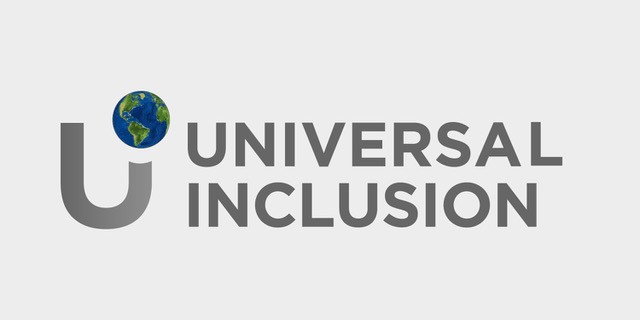Jacqueline Winstanley FRSA, CEO and Founder of Universal Inclusion and The Inclusive Entrepreneur Network, chaired a Birkbeck CIMR debate on Unlocking the Potential of Disabled Entrepreneurs on Wednesday September 22nd 2021. This debate is part of the Centre for Innovation Management Research CIMR Debates and Workshops in Public Policy series and was held in collaboration with the All Party Parliamentary Group for Inclusive Entrepreneurship. Jacqueline was joined by speakers David Walsh, Dr Eva Kašperová, Beth Kume-Holland and David Halabisky.
Following is the report issued by Birkbeck CIMR after the debate.
Unlocking the potential of disabled entrepreneurs

In this panel event, researchers and practitioners in inclusive entrepreneurship came together to explore a co-designed pathway to support disabled entrepreneurs.
In 2020, the disability employment gap increased by 0.7 percentage points, meaning that the employment rate of disabled people is now 28.8% lower than that of people who are not disabled. Yet despite facing additional challenges to enter the job market, disabled people are rarely encouraged to consider self-employment.
In the first of this term’s CIMR Debates and Workshops in Public Policy, academics and practitioners came together to challenge current thinking on the self-employment of disabled people. Panellists called for the government’s Levelling Up agenda to go beyond what is currently available for supporting disabled entrepreneurs and to tackle the issues affecting their successful participation in the ecosystem.
This online event was introduced by Dr Lisa Cameron MP, Chair of the All Party Parliamentary Group (APPG) for Inclusive Entrepreneurship and chaired by Jacqueline Winstanley FRSA, Founder and CEO of Universal Inclusion and The Inclusive Entrepreneur Network. Speaking with a stellar panel who are researching and working in the inclusive entrepreneurship space, Jacqueline posed some of the key questions needed to address policy improvement in this area.
What leads disabled people into entrepreneurship?
Dr Eva Kašperová, Research Fellow at the Centre for Research in Ethnic Minority Entrepreneurship (CREME), Aston Business School, with interest in inclusive entrepreneurship and enterprise policy and support, began the discussion by sharing some of the key motivations for disabled entrepreneurs:
- The prospect of greater autonomy and financial reward
- Greater flexibility over work tasks, hours and location
- Recognising a gap in the market, notably for disability-related products or services
- A desire to make a difference and contribute to society
- For those who have acquired a disability later in life, as a way of coping with a major life change and channelling feelings of frustration or hopelessness into something positive
Far from being unlikely entrepreneurs, Eva’s research shows that disabled people are more likely to start their own business than non-disabled people and are also more likely to set up a social enterprise.
What are the challenges faced by disabled entrepreneurs?
Jacqueline posed the second question to panellist Beth Kume-Holland, Founder of Patchwork Hub and MOKOM. Beth represented the Inclusive Entrepreneurship Network and shared its findings in her Ambassador role, also reflecting on her own entrepreneurial journey.
- Lack of awareness and understanding of accessibility, both physically and virtually
- Inconsistent support available across the UK
- Lack of integration of disability and entrepreneurship support
- The inaccessibility of the mainstream startup space, which often glorifies burnout or focuses on building a business alongside 9-5 work
- Co-designing all programmes of support (mainstream or disability-specific) with people with lives experience of disability, and recompensing disabled people for their expertise and time, as with all other professions.
Beth praised support networks like the Inclusive Entrepreneur network as a ‘lifeline’ to disabled entrepreneurs and called for policy change to create genuinely inclusive startup and scale-up programmes to effectively support disabled entrepreneurs.
What support is needed for disabled entrepreneurs?
David Walsh, Managing Partner of FlameFlinch Partners LLP, Chairman of Supernotes and Chairman of the Malta Business Network (UK) argued that support for disabled entrepreneurs needs to tackle multiple areas, including mentorship, specific expertise, different KPIs and support extended to co-founders.
Commenting that a lot of business accelerators are generalised in their approach, David called for an elective hub which centres disabled entrepreneurs and attracts people interested in supporting them. He also challenged policymakers to create more innovative solutions for supporters, for example by offering higher tax incentives for supporting entrepreneurs.
What needs to change in current policies affecting these communities?
The panel discussion was concluded by David Halabisky, Economist in the OECD Centre for Entrepreneurship, SMEs, Regions and Cities. David called for a rethink of the way initiatives are designed, promoted and presented on the web, as the typical image of a young, male entrepreneur in the tech sector persists in many places.
David also suggested that scaling up initiatives in partnership across government, the disabled community and the private sector would ensure that support organisations are equipped to help entrepreneurs. He concluded that for the support system to change, attitudes towards disabled entrepreneurs would likewise need to change.
Co-creating an inclusive future
The panel was followed by a question and answer session that explored these issues further, including how virtual and in-person programmes can be made more accessible and how different groups can collaborate to effect change.
In summing up the session, Jacqueline Winstanley called for a co-designed pathway that combines disability support and entrepreneurship training, ideally sitting in the Department for Business, Energy and Industrial Strategy and not the Department for Work and Pensions. Equitable access to finance and measuring of success that looks beyond turnover were also key takeaways from the event.
In closing, Jacqueline encouraged delegates to watch the Inclusive Entrepreneur showreel, which offers ‘a taste of the future if we can co-design and collaborate’.
We would like to thank everyone who attended this event for helping move forward the discussion on inclusive entrepreneurship.
Further Information:

